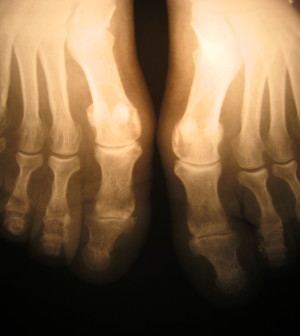- Recognizing the Signs of Hypothyroidism
- 10 Strategies to Overcome Insomnia
- Could Artificial Sweeteners Be Aging the Brain Faster?
- Techniques for Soothing Your Nervous System
- Does the Water in Your House Smell Funny? Here’s Why
- Can a Daily Dose of Apple Cider Vinegar Actually Aid Weight Loss?
- 6 Health Beverages That Can Actually Spike Your Blood Sugar
- Treatment Options for Social Anxiety Disorder
- Understanding the Connection Between Anxiety and Depression
- How Daily Prunes Can Influence Cholesterol and Inflammation
Nasal Allergies, Hay Fever Tied to More Migraines in Study


Allergies and hay fever may increase the number and severity of migraine headaches, according to a new study.
Researchers analyzed data from nearly 6,000 migraine sufferers who filled out a questionnaire in 2008 as part of the American Migraine Prevalence and Prevention Study. Two-thirds of the respondents said they had nasal or seasonal allergies, or hay fever.
Based on the findings, the study authors concluded that those with allergies and hay fever were 33 percent more likely to have more frequent migraines than those without these conditions. The report was published online Nov. 25 in the journal Cephalalgia.
The study is one of the first to link the frequency of migraines to irritation and inflammation of the nasal mucus membrane caused by allergic and non-allergic triggers, according to lead author Dr. Vincent Martin. He is a professor of medicine at the University of Cincinnati and co-director of the university’s Headache and Facial Pain Program.
“We are not sure whether the [allergies and hay fever] causes the increased frequency of headaches or whether the migraine attacks themselves produce symptoms of [allergies and hay fever] in these patients,” Martin said in a university news release. “What we can say is if you have these symptoms, you are more likely to have more frequent and disabling headaches.”
The findings could prove important in treating migraines, according to study principal investigator Dr. Richard Lipton, co-director of the Headache Center at Montefiore Medical Center in New York City.
“The nose has largely been ignored as an important site involved in the initiation and [worsening] of migraine headache,” he said in the news release. If allergies and hay fever worsen migraine symptoms, as the study findings suggest, treating these nasal conditions may help relieve headache in people with both disorders, noted Lipton. He is also a professor of neurology at the Albert Einstein College of Medicine at Yeshiva University.
About 12 percent of people in the United States have migraines, which are three times more common among women than men. Allergies and hay fever affect between one-quarter to one-half of the U.S. population. Symptoms include a stuffy and runny nose, postnasal drip and itchy nose.
More information
The U.S. National Institute of Neurological Disorders and Stroke has more about migraine.
Source: HealthDay
Copyright © 2026 HealthDay. All rights reserved.










